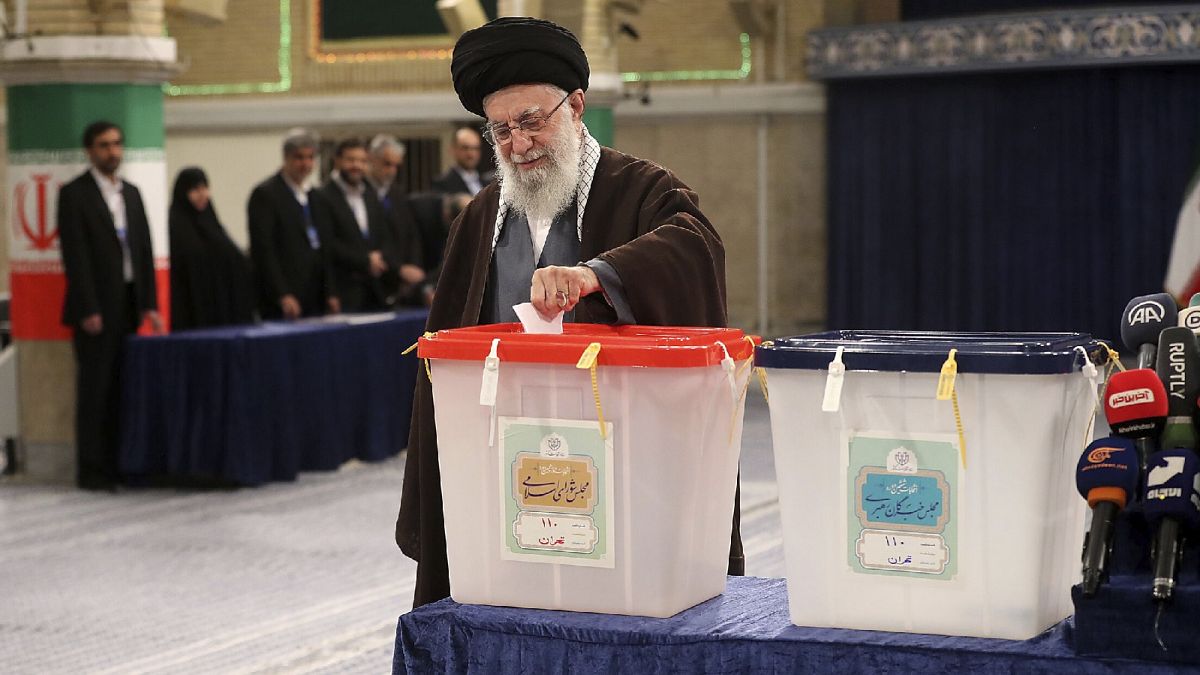Officials including Supreme Leader Ayatollah Ali Khamenei sought to link turnout directly to taking a stand against Iran's enemies.
Iran held its first parliamentary election Friday since mass 2022 protests over mandatory hijab laws following the death of Mahsa Amini, apparently drawing a low turnout amid calls for a boycott.
The state-owned polling center ISPA predicted a turnout of 38.5% nationally with a 2% margin of error. Its estimate is based on a survey of 5,121 voting-age people. In capital Tehran, it forecasts a turnout of 23.5%.
That could put turnout on track to be its lowest ever. The lowest previous came in the last parliamentary election in 2019, which saw a 42% turnout.
It wasn't immediately clear if voter apathy or an active desire to send a message to Iran's theocracy depressed the number of voters coming to polling stations across the Islamic Republic. While state-controlled television broadcast images of lines of voters, others across the capital of Tehran saw largely empty polling stations.
Officials including Supreme Leader Ayatollah Ali Khamenei sought to link turnout directly to taking a stand against Iran's enemies. Others, including imprisoned Nobel Peace Prize laureate Narges Mohammadi, urged a boycott of a vote they derided as a “sham.”
Authorities broadly barred politicians calling for any change within the country's government, known broadly as reformists, from running in the election.
Of about 15,000 candidates vying for seats in the 290-member parliament, formally known as the Islamic Consultative Assembly, only 116 are considered to be relatively moderate or pro-reform candidates.
Meanwhile, Iran's economy continues to stagnate under Western sanctions over Tehran's rapidly advancing nuclear program and the country's arming of militia proxies in the Middle East and Russia in its war on Ukraine.
Some of the voters acknowledged the challenges facing the Islamic Republic.
“There are many problems; too many problems," said one voter, who just gave her last name, Sajjad. "We are sad, we are sorrowful and we voice our criticism as much as we can. God willing, those responsible will start thinking about us, and probably many of them do care.”
The boycott calls have put the government under renewed pressure — since its 1979 Islamic Revolution, Iran’s theocracy has based its legitimacy in part on turnout in elections.
In one polling place Friday in Tehran, a young woman without a hijab and her mother, wearing one, entered. There was no comment from officials or police on hand.
“I accompanied my mother who wanted to vote just to remind authorities about last year’s crackdown,” said the daughter, who gave her first name, Zohreh. Her mother voted for a relative moderate running in their district, while Zohreh declined to cast a ballot, she said.
Meanwhile, a heavy security presence could be seen across the capital, with ordinary and anti-riot police officers visible in main squares and junctions. Some 200,000 security forces have been deployed across the country as over 59,000 polling stations opened. Another 1 million people reportedly are running the election, home to some 85 million people.
Estimates put the voting-age population at 61 million.
Parliament terms run for four years, and five seats are reserved for Iran’s religious minorities. Under the law, the parliament has oversight over the executive branch, votes on treaties and handles other issues. In practice, absolute power in Iran rests with its supreme leader.
Hard-liners have controlled the parliament for the past two decades — with chants of “Death to America” often heard from the floor.
